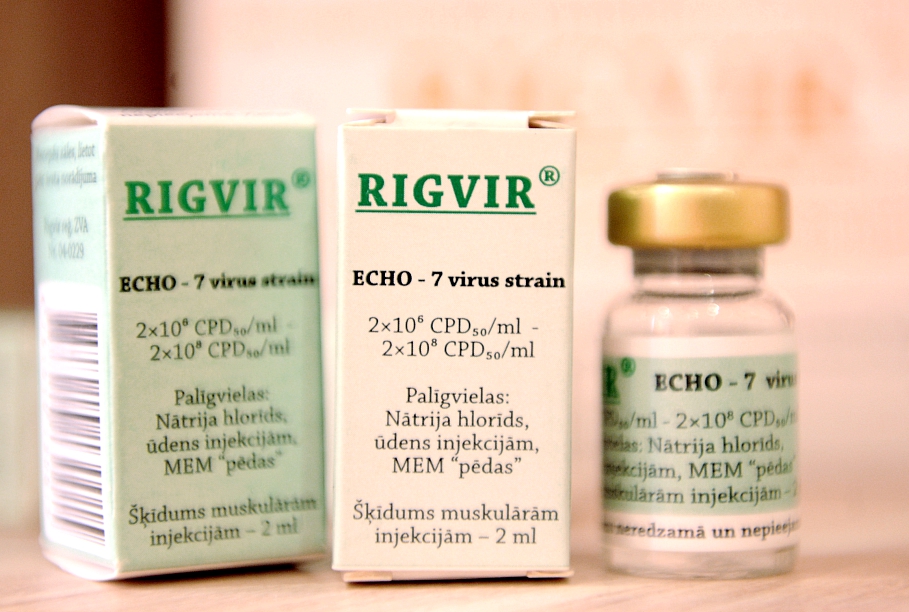That's what the State Agency of Medicines (ZVA) told LETA May 21. ZVA earlier pulled sales of Rigvir after repeat tests showed that samples of Rigvir anti-cancer medicine contain a smaller amount of the active ingredient than promised by the manufacturer.
While the efficacy of Rigvir has been questioned in the past, this development put many cancer patients in Latvia, where Rigvir is a state-compensated cancer treatment, in the highly stressful situation of possibly having been treated with sub-par medicines.
Now ZVA says that Latima had turned to the institution asking the allow an out-of-turn distribution of a single batch of drugs. Attached to the request were results obtained in the lab of the Latvian Infectology Center, but ZVA has found that the test results were obtained with a method that does not prove that the batch fits the requirements making it fit for distribution.
Therefore the institution will not change its decision.
While the Health Inspectorate, another institution that decided on banning the distribution of Rigvir, ventured to say that in early May it received 37 patient applications asking to lift the ban on Rigvir sales, but that so far no doctors have asked to ensure access to the drug to continue ongoing treatment.
The institutions are collaborating in obtaining info for deciding whether sales could be allowed during an interim period for patients that were being treated with Rigvir before the ban.
Both ZVA and the Health Inspectorate have also contacted the Latvian Oncologists' Association as well as medical staff treating cancer patients, asking for their opinion on temporary lifting sales restrictions on the drug.
Rigvir was removed from sale in Latvia in March, as reported by LSM, though the company said at the time that this was due to "financial reasons" and made no mention of clinical concerns.
LTV's De Facto later reported that a sample of Rigvir, which ZVA had sent to an independent laboratory in the UK, was found to have a much smaller amount of the Rigvir ECHO-7 virus, which is supposed to fight cancer cells, than promised by the manufacturer
Last year the state contributed around 240,000 euros towards the costs of patients undergoing treatment with Rigvir; this comes to about €2 million since 2011 when it was introduced into the list of compensated medicines.
In an April 3 post on that appears on medicine.lv, neurosurgeon and Saeima deputee Renārs Putniņš (New Unity) joined the growing ranks of doctors to condemn Rigvir, calling the entire Rigvir ordeal an affair and asking for an investigation as to how the medicine – which doctors have argued has too few reputable studies to back its efficacy – could have been registered in the first place.




























